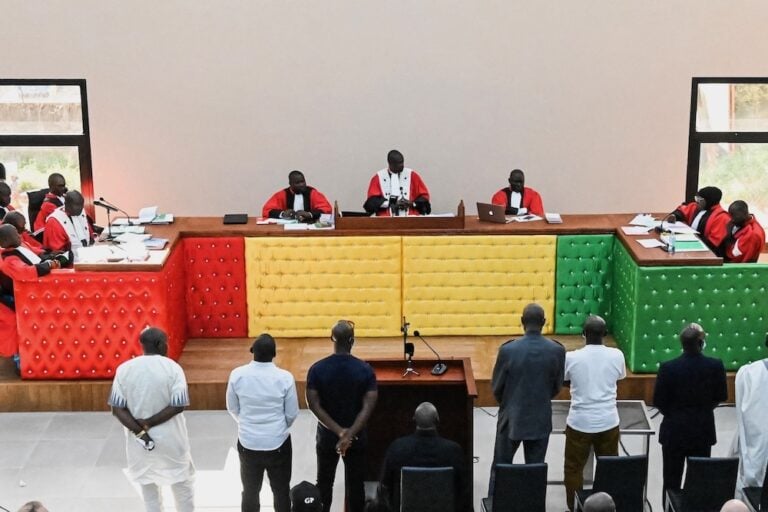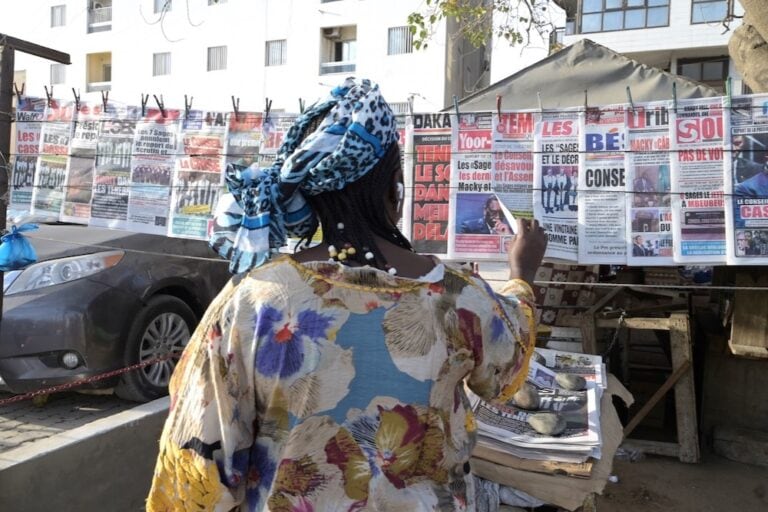(MFWA/IFEX) – On 9 July 2004, Madiambal Diagne, managing editor of the privately-owned newspaper “Le Quotidien”, was arrested and jailed for “publishing confidential documents, disseminating false news and initiating actions [likely to] compromise public security”. The 5 July edition of “Le Quotidien” published minutes of the High Judicial Council of Senegal, in which some judges […]
(MFWA/IFEX) – On 9 July 2004, Madiambal Diagne, managing editor of the privately-owned newspaper “Le Quotidien”, was arrested and jailed for “publishing confidential documents, disseminating false news and initiating actions [likely to] compromise public security”.
The 5 July edition of “Le Quotidien” published minutes of the High Judicial Council of Senegal, in which some judges alleged that they were victims of “hounding and settling [of] scores” by political authorities. Diagne was interrogated on two occasions by gendarmes. He was subsequently placed under a committal order and detained at a prison in the capital, Dakar, on the orders of the state prosecutor. The editor was charged with breaching Article 255 of the Criminal Code, which proscribes the “dissemination of false news”, and Article 139 of the Criminal Procedure Code, which limits journalists’ right of access to information. He is awaiting sentencing.
According to MFWA-Senegal sources, Diagne’s arrest and detention have sparked a wave of dissent and protests among professional and political organisations in the country. The Union of Information and Communications Practitioners of Senegal (SYNPICS) condemned what it termed the “attempted intimidation” of the independent media and demanded Diagne’s “immediate release.”
The independent media in Senegal also declared 12 July a “Day without the press”, in solidarity with the incarcerated journalist. About 10 Dakar dailies published a common editorial in which they denounced Diagne’s arrest and detention as a “violation of freedom of expression.” The papers also decided to boycott all activities of the government and the ruling Parti démocratique sénégalais (PDS) party “until further notice.” Several private radio stations limited their broadcasts to playing music, only occasionally interrupting to provide information about Diagne’s detention.


